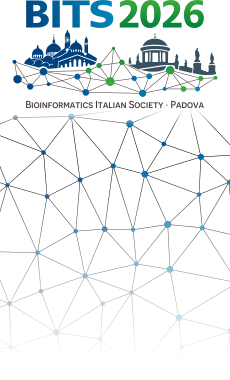=====================================================================
International Course on
COMPUTATIONAL INTELLIGENCE METHODS FOR DATA ANALYSIS
IN ONCOLOGY BIOINFORMATICS
Vietri sul Mare, Salerno (Italy) - May 24-29, 2010
School Website: http://ciob10.disi.unige.it/
Joint course of the International School on Neural Nets "E.R. Caianiello"
and of the Italian Network for Oncology Bioinformatics
=====================================================================
* Please pass this Call for Participation to interested Colleagues *
PURPOSE OF THE COURSE
The Twentieth century is often referred as the Century of Biology, as
evidenced by the extraordinary development of this scientific area who
concluded that century with the great success of the Human Genome Project and
the subsequent complete sequencing of human DNA.
Currently we are at the beginning of the so-called Post-Genomic Era,
characterized on one hand by the availability of a huge amount of
Bioinformatics data (often in the public domain), and on the other hand by the
need for new and efficient mathematical methods and algorithms capable of
distill the information contained in these data. As a matter of fact the
emphasis of research in Bioinformatics is shifting from the development of
efficient storing and handling data methods, to the one of methods able to
extract useful information from data.
Computational Intelligence methodologies (that is, neural networks,
evolutionary algorithms and fuzzy logic), partly inspired by natural systems,
are a family of powerful methods for data analysis, able to transform the
available heterogeneous data into biological knowledge. In recent years, these
algorithms have been successfully applied in Bioinformatics to the solution of
complex problems concerning signal analysis, classification, clustering,
feature selection, and data mining and visualization. Nowadays, their
applications encompass almost all areas of Bioinformatics.
The course covers the applications of Computational Intelligence methods to
the analysis of Bioinformatics data, with particular focus on applications in
oncology.
It is addressed to PhD students and researchers in Bioinformatics, Computer
Science, Mathematics and Engineering, and includes:
- theoretical lectures introducing the main aspects of Bioinformatics and
Computational Intelligence methodologies;
- lectures aimed to analyze some significant case studies of data analysis in
oncology bioinformatics;
- practical classes showing some relevant applications of Computational
Intelligence methods to Bioinformatics data.
LIST OF LECTURERS
* Pierre Baldi, University of California, Irvine, CA, USA
* Michele Ceccarelli, University of Sannio, Benevento, Italy
* Raffaele Giancarlo, University of Palermo, Italy
* Antonio Giordano, University of Siena, Italy and Director Sbarro Institute
for Cancer research & Molecular Medicine, Philadelphia PA, USA
* Paulo Lisboa, Liverpool John Moores University, Liverpool, UK
* Francesco Masulli, University of Genoa, Italy & Temple University, PA, USA
* Alfredo Petrosino, University Parthenope, Naples, Italy
* Stefano Rovetta, University of Genoa, Italy
* Giuseppe Russo, Temple University, Philadelphia, PA, USA
* Roberto Tagliaferri, University of Salerno, Italy
* Giorgio Valentini, University of Milan, Italy
THE COURSE IS JOINTLY ORGANIZED BY
International Institute for Advanced Scientific Studies (IIASS)
Ettore Majorana Foundation and Center for Scientific Culture (EMFCSC)
Italian Network for Oncology Bioinformatics (RNBIO)
THE COURSE IS SPONSORED BY
GNCS, Gruppo Nazionale per il Calcolo Scientifico
INNS, International Neural Network Society S.I.G. on Bioinformatics
SIREN, Italian Neural Networks Society
DISI - University of Genoa, Italy
University of Salerno, Italy
APPLICATION
Deadline: March 30-th 2010 (forms will be soon available at
The course is open to all motivated students and research scientists, of
any nationality.
Applicants with few experience should include a recommendation letter of
their supervisor.
Places are limited to a maximum of 60 participants in addition to the
lecturers. These will be allocated on a first come, first served basis.
FOR ANY FURTHER INFORMATION
please visit the website




